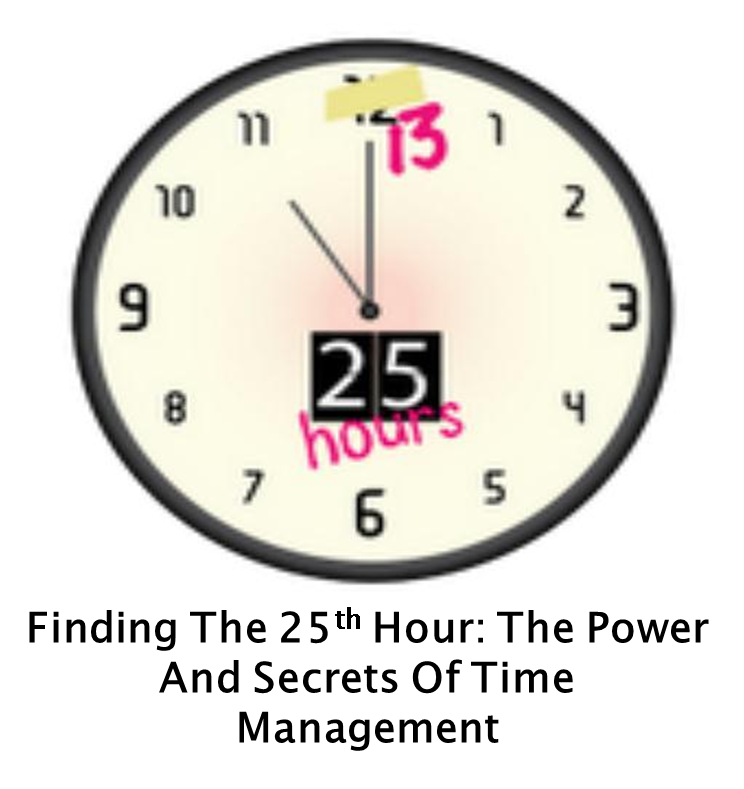
Time management is a pretty hot topic and over the last few months I have spoken on it at several entrepreneurial and business leadership conferences.
I have been teaching classes and concepts of time management for over 25 years. When I consult and coach these business leaders I often hear them say things such as, “There aren’t enough ‘hours’ in the day.” “If I could just have one more hour I’d be okay.” But how does one “do” it? How do you find that 25th hour? How does a business leader find the time needed to get everything done? How can one “find” that extra hour needed during the course of their busy day to get to everything?
This is a good news/bad news situation. The bad news is that in reality you only get 24 hours in the day. However, the good news is that there are things that you can do to make the most of the 24 hours that you have and cut down on where you might be wasting hours of your precious time.
There are numerous strategies, tactics and tools that can be used to establish priorities to get organized, as well as an entire industry that has been built around it; which can assist in keeping both work and personal priorities in balance. I don’t endorse any particular system; there are many good ones available. The key is to find what works for you, whether it’s on your smartphone, an electronic system, a paper-based system, or you keep it all in your “head” there are certain principles that can be adhered to in order to carve out more time in your calendar.
Technology may have changed the way in which we do our jobs, however, some of the fundamental basic issues regarding time management have not changed over the years; and in some cases, the problems have actually gotten worse as a result of the scope of information that modern technology has created.
Two Big Problems
For example, recently when addressing a group of entrepreneurs at a business conference I asked them what their two biggest problems were with respect to time. The responses were identical to responses I have been receiving to these questions for years:
- Correspondence: The quantity of emails received and the time needed to sort through all of them
- Interruptions: The time lost by interruptions caused either via phone, in-person or electronic media
 In my book Power vs. Perception: Ten Characteristics of Self-Empowerment for Women I discuss how misunderstandings, miscommunications or differences in work styles, can have a negative impact on working relationships and the work environment; especially between men and women in the workplace.
In my book Power vs. Perception: Ten Characteristics of Self-Empowerment for Women I discuss how misunderstandings, miscommunications or differences in work styles, can have a negative impact on working relationships and the work environment; especially between men and women in the workplace.

 Over the years of consulting, training and coaching, the complaints I hear the most from leaders, managers and business people involve the difficulty they have motivating and communicating with their team members. They are unable to understand why their team members are “not motivated.” They can’t get their team members to work together… and there’s always those “difficult, problem people” who just don’t “get it.”
Over the years of consulting, training and coaching, the complaints I hear the most from leaders, managers and business people involve the difficulty they have motivating and communicating with their team members. They are unable to understand why their team members are “not motivated.” They can’t get their team members to work together… and there’s always those “difficult, problem people” who just don’t “get it.”